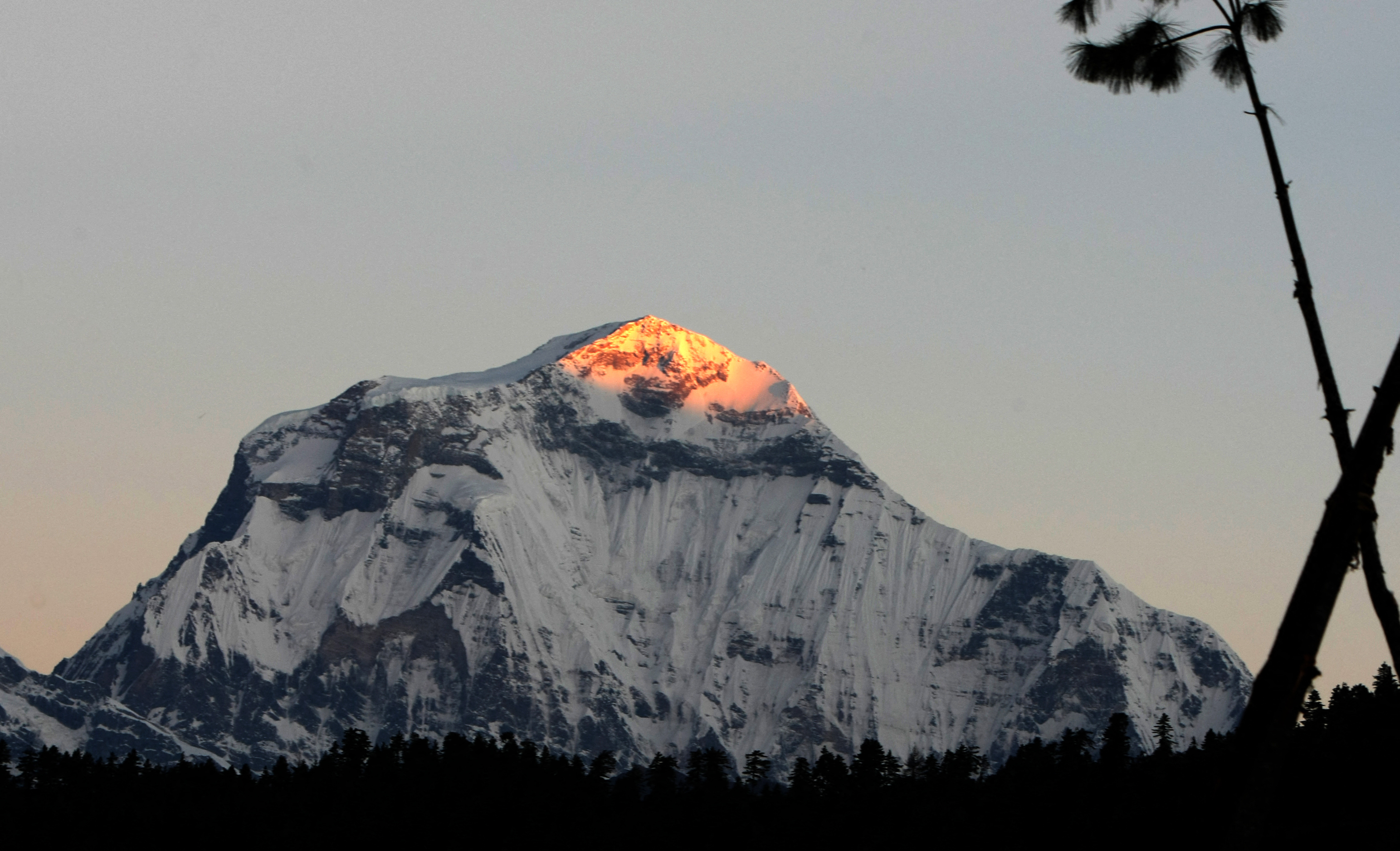World
Five Russian climbers killed at world’s seventh highest peak

Five Russian mountaineers have died on Mount Dhaulagiri, the world’s seventh-highest peak after apparently slipping and falling, an expedition organizer in Nepal announced on Tuesday.
The climbers had been ascending the 26,788-feet high Himalayan mountain during Nepal’s autumn climbing season.
They had been reported missing since Sunday and were confirmed dead after a rescue helicopter spotted their bodies, according to Pemba Jangbu Sherpa of the Kathmandu-based I AM Trekking and Expeditions.
PRAKASH MATHEMA/Getty/via AFP
Two of the climbers had successfully reached the summit, while the others turned back before reaching the top. Radio communication had got lost between the climbers and their base camp team, heightening concerns for their safety.
Efforts to retrieve the bodies from the mountain remain uncertain, as the operation would require significant planning, crew, and specialized equipment.
Mount Dhaulagiri, known for its steep and challenging terrain, is notorious among climbers for its unpredictable weather and a myriad technical challenges.
Its summit was first reached in 1960 by a Swiss-Austrian team. Since then, it has become a popular destination for climbers, with hundreds scaling its heights each year in pursuit of adventure and achievement.
The mountain is one of eight of the world’s highest peaks, its natural settings appealing to many mountaineers seeking the thrill of high-altitude exploration.
Foreign climbers play a crucial role in bolstering Nepal’s economy, providing a significant source of revenue for communities.
However, the rapid expansion of the climbing industry has sparked intense competition among companies, leading to concerns that some may prioritize profit over safety.
There have been more than 300 deaths on Everest and the surrounding region since records of mountain climbing there began a century ago, and many of these bodies remain undiscovered.
According to the BBC, the Nepalese government first launched a cleanup campaign of the entire region in 2019, which included removing some bodies of dead climbers.
But this year has been the first time authorities set the goal of retrieving five bodies from the so-called “death zone,” which describe mountainous areas above an altitude of 26,247 feet.
The Hindustan Times reports that Nepal has issued more than 900 permits for its mountains this year, including 419 for Everest, which earned the country more than $5 million.
The latest incident serves as a somber reminder of the inherent risks associated with high-altitude mountaineering.
Further details regarding the climbers and their expedition remain unavailable at present while the mountaineering community grapples with this loss.
This article includes reporting from The Associated Press








